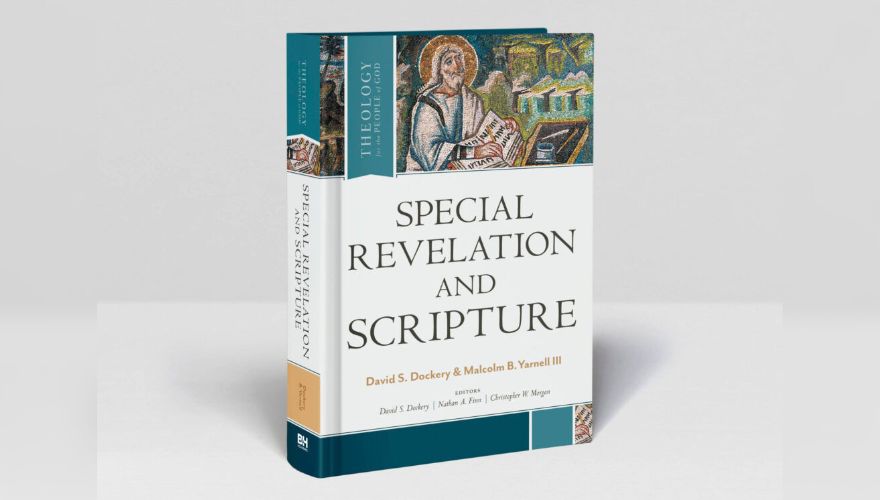
(EDITOR’S NOTE — Dockery and Yarnell are authors of “Special Revelation and Scripture,” releasing this year from B&H Academic.)
The Bible describes itself as a special book.
Even before the canonization of the sacred texts, importance was attached to the prophetic and apostolic writings. Moses wrote “all the words of the Lord” in the “covenant scroll.” Joshua’s farewell address was written “in the book of the law of God.” Samuel spoke words about the manner of the kingdom and “wrote them on a scroll, which he placed in the presence of the Lord.” Jesus repeatedly appealed to the authoritative Scriptures. Similarly, Paul and the apostles thought of the scrolls as the “very words of God.”
Jesus Himself declared that Scripture is the Word of God which “cannot be broken.” Similarly, the apostles noted it is “the prophetic word strongly confirmed” which the prophets and apostles wrote, because these words were spoken from God as the writers “were carried along by the Holy Spirit.” The Bible itself thus acknowledges that the prophetic-apostolic word is God’s Word written. Without the sacred writings there would be no Holy Scripture and, therefore, no Word of God available to us.
God’s revelation of Himself
The Bible affirms God has made Himself known in a variety of ways. Thankfully, God has not abandoned us to our own devices but has manifested Himself to us. We know Him, not due to our seeking Him but because He has made Himself known to us. God has acted and spoken in history. The word “revelation” means an uncovering, a removal of the veil, a disclosure of what was previously not known.
More specifically, revelation is God’s manifestation of Himself to humankind in such a way that men and women can know and have fellowship with Him. In recognition of the human predicament, God chose from the beginning to make Himself known within time and space. He disclosed Himself in both acts and works, primarily in a personal way and with a redemptive purpose. Through miracles, the Exodus and ultimately in Jesus Christ, God has revealed Himself in human history.
Divine revelation includes not only the Lord’s acts in history, but also the prophetic-apostolic interpretation of these events. Thus, we must also say that God’s revelation is not merely personal but also propositional, in that it communicates truths about God to His people. While there is tension between these two aspects of revelation, we affirm that revelation is both knowledge about God and knowledge of God. Revelation is knowledge about God which leads us to know God in a personal and salvific way.
General revelation and special revelation
Revelation is also often and properly discussed in two different categories: general revelation and special revelation. General revelation is universal in the sense that it is always God’s self-disclosure of Himself in a general way to all people in all places. General revelation occurs through nature, through human experience and conscience, and in history. God’s general revelation of Himself is plain, though it is often misinterpreted because through it sinful and finite humans are trying to understand a perfect and infinite God. General revelation discloses God clearly enough to sinful human beings that they are held accountable for their responses to it. Therefore, no one can be excused for missing God’s revelation.
However, the light of nature, including conscience, is not sufficient to import the knowledge of God necessary for salvation. What is needed to understand God’s self-disclosure fully is His special revelation. Indeed, special revelation provides the viewpoint through which we can understand and appreciate God’s general revelation. Divine truth exists outside special revelation, but it is consistent with and supplemental to, not a substitute for, special revelation. General revelation is consistent with special revelation, yet distinct from it.
In contrast to God’s general revelation, which is available to all people, God’s special revelation is available to particular people at specific times in particular places. Special revelation is not only particular but progressive, and not only propositional but personal. The content of special revelation is primarily God Himself, His works and His Word. It is the declaration of truth about God, His character and His actions and relationship with His creation. God is pleased to reveal Himself and His majestic Word to people of faith.
The Word of God
God’s Word, recorded and interpreted by the prophets and the apostles, calls for us to embrace, with humility and teachable hearts and without finding fault, whatever is taught in Holy Scripture. God is ontologically truth, and His Word is epistemologically true.
People need to hear about God’s special revelation of Himself as the eternal Word who became man, Jesus Christ, if they are going to be reconciled with God. Christ commissioned His disciples to proclaim this special revelation. His good news tells of His death to atone for our sins and of His resurrection to justify those who believe in Him. Christ ascended to heaven, but He sent the Holy Spirit to inspire the apostles in their writings to the church and to empower the church in its witness to the world.
We call the writings of the prophets of the Old Testament and the apostles of the New Testament “the Holy Bible.” This canon, composed of old and new together, centers on the person and work of Jesus Christ. The Bible is our only certain means of access to His special revelation today. It infallibly conveys “the faith once for all delivered to the saints.” That makes the Bible a special book indeed.
God’s special book
The Bible is a special book because it is the truth about the Truth, God the Trinity. The Bible is a special book because it is the written word of the eternal Word, Jesus Christ. The Bible is a special book because its authors and their words were inspired by God the Holy Spirit. The Bible is a special book because God made it perfectly true, inerrant, sufficient and authoritative. The Bible is a special book because the Spirit led the church to treasure it, to collect it and to preserve it. The Bible is a special book because he leads the church today to hear it, to interpret it and to proclaim it.
The Bible is a special book because it prophesies to us for our “strengthening, encouragement and consolation.” The Bible is a special book, and there is none other like it. The Bible is a special book because God encounters us in it to transform our hearts, giving us faith, hope and love. The Bible is a special book, so please take it up and read it. God wants to speak to you today. The Bible is God’s Holy Word, and it will remain the most special book of all time.
(EDITOR’S NOTE — David Dockery is the president of Southwestern Baptist Theological Seminary. Malcolm B. Yarnell III is an author and research professor of theology in the School of Theology at Southwestern Baptist Theological Seminary.)


